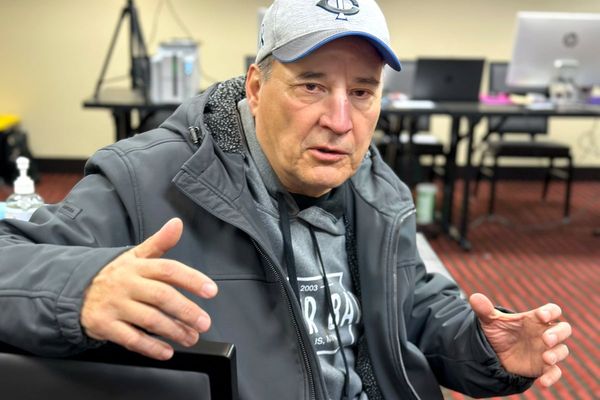The Episcopal Church made good on vows by its leaders to take vigorous action against systemic racism, passing a number of resolutions aimed at promoting racial reconciliation — and electing minority candidates to two key churchwide positions — at its 80th general convention, a gathering of nearly 1,300 representatives that was to wrap up its legislative duties Monday in Baltimore.
It took the House of Bishops and the House of Deputies, the governing bodies of the Episcopal Church in the U.S., little time to approve what was perhaps the most widely publicized of the more than 400 resolutions it considered during the convention. Both overwhelmingly approved a proposal to set aside about $2 million a year to create a churchwide coalition for racial equality and justice.
Made up of a voluntary association of Episcopal dioceses, organizations and individuals, the group is to “facilitate, coordinate, encourage, support and network” efforts in support of “racial justice and equity and the dismantling of white supremacy” inside and outside the church.
Once the coalition is formed, it is to be backed with a startup fund of $200,000 per year between now and 2024, when the 81st general convention is held in Louisville, Kentucky.
The resolution is one measure church leaders have developed in recent years to compensate for the role its early leaders played in supporting and benefiting from slavery and the systems of racist oppression it helped entrench in American society.
Convention delegates — more than 100 bishops and about 1,200 clergy members and lay representatives from across the denomination — also approved a resolution that would dedicate about $2.5 million over the next two years to create a task force further investigating the church’s association with Indigenous boarding schools in the United States.
The U.S. government, aided by several Christian denominations, created and operated hundreds of the schools between the 1860s and the 1960s, moving Native American children from their homes and families and to the schools to “civilize” them with Eurocentric educations. The Episcopal Church is believed to have had links to at least nine of the schools.
The call for greater diversity inside and outside the denomination also found expression in its election of officers. Voters elected Julia Ayala Harris, a lay deputy from the Diocese of Oklahoma, as the new president of the House of Deputies, and the Rev. Rachel Taber-Hamilton, a priest in the Diocese of Olympia in Washington state, as the body’s vice president.
Harris, who is Latina, and Taber-Hamilton, who is of Shackan First Nation ancestry, will become the first people of color serving together as leaders of the House of Deputies.
“This week, the Episcopal Church committed itself and its resources to the reckoning with its past in order to create a more just, inclusive, and authentic future,” Harris, 41, said in a sermon Monday — including its election of someone who grew up “a little brown girl” to one of its highest positions.
The delegates also approved the church’s proposed budget of $100.5 million, passed a resolution condemning Russia’s invasion of Ukraine, and approved a measure calling for trial use of a revised liturgy for its Good Friday services. The liturgy the church traditionally uses has drawn criticism for its apparent suggestion that “the Jews” helped bring about the crucifixion of Jesus.
As legislative business was drawing to a close, the House of Bishops issued a statement naming “the climate crisis” as an overarching challenge that affects every social justice issue on which they acted over their four-day meeting.
The convention was a truncated version of what church leaders originally planned. Presiding Bishop Michael Curry and the Rev. Gay Clark Jennings, whose 10-year term as president of the House of Deputies ended Monday, ordered the assembly shortened from eight days to four due to concerns over a potential coronavirus outbreak.
--------







